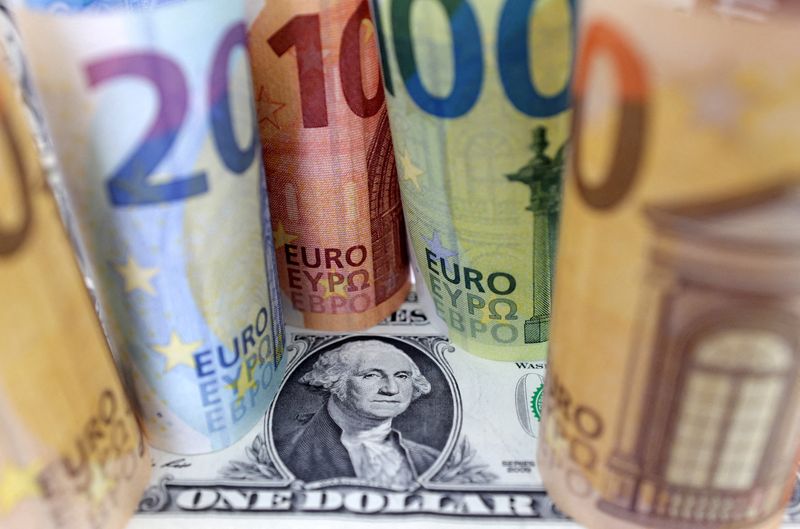By Leika Kihara
STRESA, Italy (Reuters) -Finance leaders of the Group of Seven (G7) advanced nations on Saturday reaffirmed their commitment to warn against excessively volatile currency moves, language Japan sees as a green light to intervene in the market to arrest rapid falls in the yen.
The agreement followed new verbal warnings from Japan's top currency diplomat Masato Kanda, who told reporters on Friday that Tokyo was ready to step into the market "any time" to counter speculative yen moves that hurt the economy.
"We reaffirm our May 2017 exchange rate commitments," the G7 ministers said in a statement on Saturday after their meeting in Stresa, Italy, in a nod to Japan's call on the group to reiterate its view on the need for currency market stability.
The G7 group has a long-standing agreement that excessive volatility and disorderly currency moves are undesirable, and that countries have authority to take action in the market when exchange rates become too volatile.
Tokyo has argued this agreement gives it freedom to intervene in the currency market to counter excessive yen moves.
"We're grateful the G7 reaffirmed its shared understanding on exchange rates. It's also reassuring for markets," Kanda told reporters on Saturday after the finance leaders' meeting.
The G7 language on exchange-rate commitment was unchanged from the group's previous statement issued on April 17, when the finance leaders met in Washington on the sidelines of the International Monetary Fund meetings.
Two weeks after the April G7 meeting, Japan is believed to have intervened in the currency market to prop up the yen to arrest what authorities described as excessive, speculative currency moves.
While this kept the yen from falling below the psychologically important 160-to-the-dollar line, the Japanese currency has yet to stage a clear rebound. It stood at 156.98 to the dollar on Friday, not far from the more than three-week low of 157.19 touched on Thursday.
There is also uncertainty on whether the G7 countries will tolerate further forays by Japan into the exchange-rate market.
Speaking in Stresa, U.S. Treasury Secretary Janet Yellen said on Thursday that currency interventions should not be a "routine" tool to address imbalances and should be used only rarely and in a well-communicated way.
The finance leaders' communique of May 2017, which was reaffirmed on Saturday, said "excess volatility and disorderly movements in exchange rates can have adverse implications for economic and financial stability".
But it also called for exchange rates to be determined by markets, and that members "consult closely in regard to actions in foreign exchange markets."
Kanda, who oversees Japan's currency policy as vice finance minister for international affairs, said on Saturday he was in "extremely close contact" with his U.S. counterparts on a daily basis including on markets.

The yen has lost 11% against the dollar this year on expectations the U.S. Federal Reserve will be in no rush to cut interest rates, which would keep a wide divergence between U.S. rates and Japan's ultra-low rates.
Markets are focusing on whether Japan will intervene again to arrest a stubbornly weak yen, which has become a headache for policymakers as it hits consumption by inflating the cost of raw material imports.